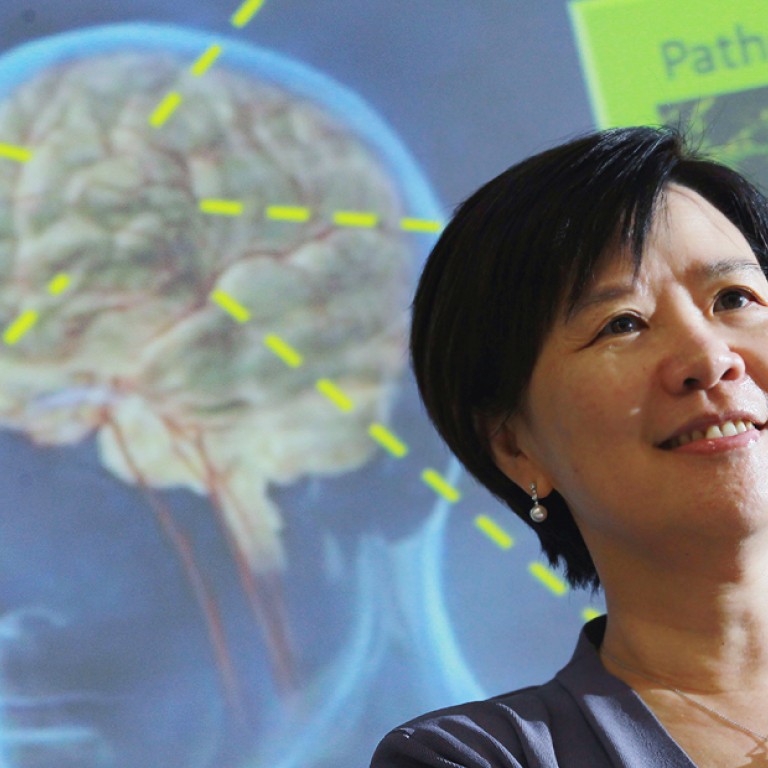
Hong Kong researchers may have found way to combat Alzheimer's disease
Researchers believe they can slow disease's progress with use of molecule found in medicinal herb
Researchers believe they have found a way to slow the progress of Alzheimer's disease, one of the leading causes of death among elderly people.

The team has also identified a molecule in the Chinese medicinal herb gou teng ( ) that inhibits the protein's activity.
Developing a drug with the use of the molecule, rhynchophylline, could take another five to 10 years, according to Professor Nancy Ip Yuk-yu, who led the research.
"We hope our method will be able to target early abnormal changes in Alzheimer's patients and can slow the progression of the disease," she said yesterday.
In 2009, Alzheimer's disease affected about 103,000 people in Hong Kong; by 2039 it is expected to affect 332,000. Early symptoms of the disease include memory loss and a decline in thinking abilities. In its advanced stages, the disease can be fatal.
Watch: What is Alzheimer's disease?
While some drugs target Alzheimer's symptoms, there are none as yet that address its cause, which is not fully understood.
The team has been studying the brain cell protein for more than 10 years. They found that its over-activation impaired the signalling between brain cells.
About three years ago, the team used rhynchophylline to improve the memory of mice.
The researchers used two groups of about 20 mice - one with Alzheimer's, one without. Each group was divided into two - one was fed with rhynchophylline for three to four months and one was not.
The mice were then put into a wading pool that contained a resting platform.
When the platform was later removed, the memory of each mouse was measured by the length of time it stayed in the section of the pool where the platform had previously been placed.
Mice which had Alzheimer's and received the treatment showed improved memory; healthy mice which received the treatment did not improve.
The study was published in last month.
The team is now seeking to work with drug manufacturers and medical schools, and will continue to study the brain cell protein to see whether it plays a role in other diseases.
Ip discouraged patients from eating the herb, saying the levels of rhynchophylline would be too small to have an effect.
